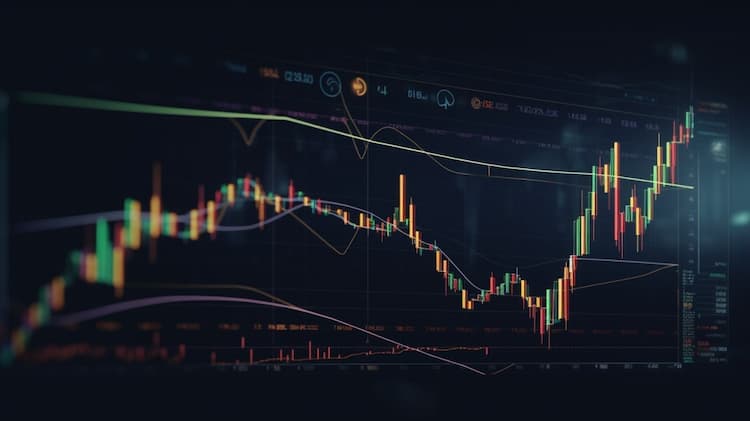
Is IVV a mutual fund?
When it comes to investing in the financial market, exchange-traded funds (ETFs) have gained significant popularity. IVV, which stands for iShares Core S&P 500 ETF, is one such ETF that investors often come across. In this article, we will explore common questions about IVV, its characteristics, and its role in the investment landscape. So, is IVV a mutual fund? Let's find out.
IVV: What Is It and How Does It Work?
IVV is an ETF offered by BlackRock, one of the world's largest asset management firms. It aims to track the performance of the S&P 500 Index, which represents the performance of the largest 500 publicly traded U.S. companies. IVV is designed to provide investors with a cost-effective and efficient way to gain exposure to the broad U.S. equity market.
To gain a better understanding of IVV, it's important to differentiate between ETFs and mutual funds. While both are investment vehicles, ETFs are traded on an exchange like stocks, allowing investors to buy and sell them throughout the trading day. On the other hand, mutual funds are bought and sold at the end of the trading day at the fund's net asset value (NAV). Therefore, IVV is not a mutual fund, but rather an ETF.
Why Choose IVV Over Other ETFs?
IVV offers several advantages that make it an attractive option for investors seeking exposure to the S&P 500 Index. Firstly, IVV has a low expense ratio, which means investors can keep more of their returns. Additionally, IVV's structure allows for tax efficiency since ETFs are structured in a way that minimizes capital gains distributions.
Furthermore, IVV provides diversification by investing in a broad range of large-cap U.S. companies across various sectors. This diversification helps to spread risk and reduce the impact of individual company performance on the overall portfolio.
IVV: Key Considerations for Investors
While IVV offers numerous advantages, it's essential for investors to consider certain factors before investing. One crucial aspect is understanding the risks associated with investing in the stock market. As IVV tracks the S&P 500 Index, it is subject to market fluctuations and volatility. Investors should be prepared for potential short-term market downturns.
Moreover, investors need to assess their investment goals, risk tolerance, and time horizon before investing in IVV or any other ETF. It's important to align investments with individual financial objectives and ensure that the chosen investment instrument fits within a well-diversified portfolio.
IVV vs. Mutual Funds: What Sets Them Apart?
As mentioned earlier, IVV is an ETF and not a mutual fund. Understanding the differences between the two can help investors make informed decisions. One significant difference is the way they are traded. ETFs, including IVV, are bought and sold on exchanges throughout the trading day, while mutual funds are transacted at the end of the trading day.
Additionally, ETFs often have lower expense ratios compared to mutual funds. IVV's expense ratio is relatively low, making it an appealing option for cost-conscious investors. Moreover, ETFs generally offer greater tax efficiency due to their unique structure.
In conclusion, IVV is not a mutual fund; it is an ETF designed to track the performance of the S&P 500 Index. It offers investors a cost-effective and efficient way to gain exposure to a broad range of large-cap U.S. companies. However, before investing in IVV or any other financial instrument, it's crucial for individuals to conduct thorough research, assess their investment goals and risk tolerance, and seek advice from a qualified financial professional.
Disclaimer: We are not providing any investment advisory services.
Source 1: IVV issuer website
Source 2: Reuters article about IVV
IVV quote and analysis
Discover the top holdings, correlations, and overlaps of ETFs using our visualization tool.
Our app allows you to build and track your portfolio.
To learn more about the IVV iShares Core S&P 500 ETF, access our dedicated page now.
FAQ
What is IVV?
IVV is the ticker symbol for the iShares Core S&P 500 ETF. It represents an exchange-traded fund that aims to track the performance of the S&P 500 Index.
Does IVV pay dividends?
Yes, IVV pays dividends. As an ETF tracking the S&P 500 Index, it collects dividend payments from the underlying stocks in the index and distributes a portion of those payments to IVV investors as dividends.
Is IVV a good investment?
The suitability of IVV as an investment depends on individual investment goals, risk tolerance, and other factors. IVV offers broad exposure to the largest U.S. companies represented in the S&P 500 Index. It can be a suitable long-term investment for investors seeking broad market exposure to U.S. equities.
How often does IVV pay dividends?
IVV typically pays dividends on a quarterly basis. The frequency and amount of dividends can vary depending on the dividends received from the underlying stocks in the S&P 500 Index.
Is IVV a mutual fund?
No, IVV is an exchange-traded fund (ETF), not a mutual fund. ETFs and mutual funds are different investment vehicles with varying structures and characteristics. IVV is traded on stock exchanges like a stock, while mutual funds are bought and sold at the end-of-day net asset value (NAV).





